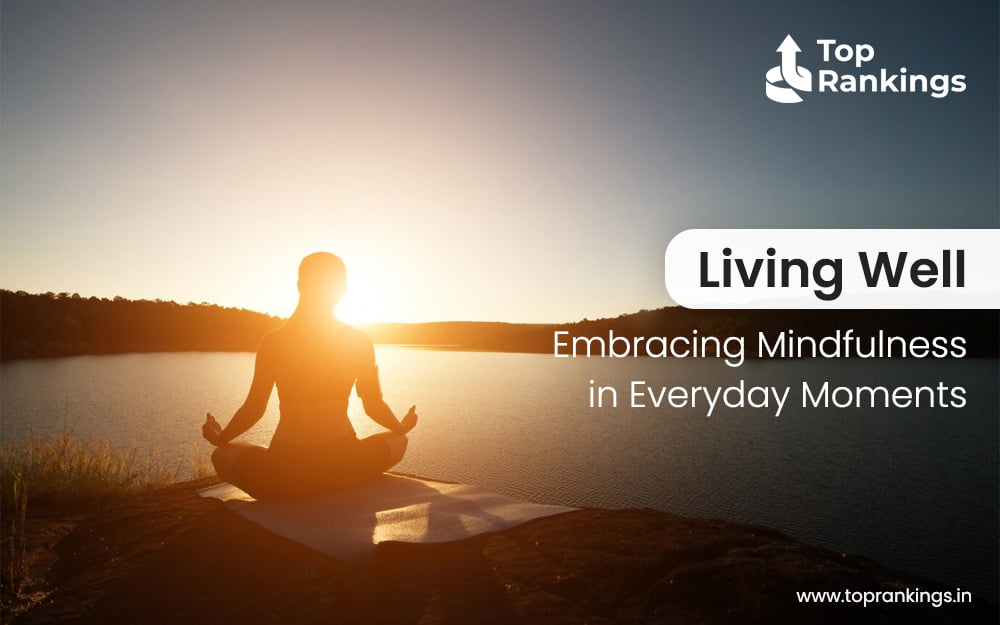
Amidst a constant bustle of activities and obligations, it can be simple to become swamped by an endless to-do list. In the middle of this chaos, mindfulness has been described as a potent stress- and anxiety-relieving practice. Being mindful means paying attention to what is going on around us and inside us while remaining judgment-free in the now. We can develop a greater sense of clarity and serenity that elevates our everyday experience by practising mindfulness in daily life.
What is Mindfulness?
Mindfulness is the practice of paying attention, on purpose, in the present moment. The deliberate practice of paying attention in the present moment is known as mindfulness. It involves taking the time to become aware of your surroundings and yourself, whether it’s mental, emotional, or physical. Although mindfulness may seem mystical, it’s quite simple to incorporate into our everyday lives, and it has many advantages.
Why Mindfulness Matters
Numerous studies show the drastic decrease in stress, anxiety, and sadness that occurs when one practices mindfulness. According to a Harvard study, practising mindfulness can boost relationships, promote well-being, and even improve cognitive function. These advantages result from the fact that mindfulness training increases our awareness of our thoughts and emotions, which enables us to respond to events more calmly rather than hastily.
Mindfulness in Everyday Moments
The fact that mindfulness doesn’t require any particular tools, much training, or a set place is among its most lovely features. Even in the most routine of circumstances, we can practice it. Let’s look at some actual instances of how you might practice mindfulness in daily life.
Mindful Eating: How often do we eat in a hurry, not enjoying the food while multitasking or going through our phones? Enjoying every bite of food and focusing on its flavours, textures, and aromas is the essence of mindful eating.
For instance, pause for a bit the next time you sip on a cup of tea or coffee. Enjoy the warmth, scent, and subtle flavour of it instead of downing a large gulp while you skim through emails. As the warmth fills your body, pay attention to how it feels. This simple awareness-raising action can make a mundane cup of coffee feel uplifting and focused.
Mindful Walking: Most of us walk without giving it much thought because we’re too busy worrying about where we need to go or what’s on our list of things to accomplish next. However, walking mindfully provides a chance to re-establish a connection with our bodies and environment.
Try this: Pay attention to every step you take the next time you walk in a park or even just drive to work. Take in the sights and sounds around you, feel the ground beneath your feet, and pay attention to how your body moves. Perhaps the sound of rustling leaves, the crisp wind, or the warmth of the sun on your skin catches your attention. This method transforms a routine walk into a peaceful, thoughtful experience.
Mindful Listening: During our conversations, we often listen less intently to fully grasp how to respond. Being present at the moment, putting aside distractions, and giving an individual your whole attention are all part of mindful listening.
For example, the next time you are talking to a friend or loved one, put your phone away, look them in the eye, and pay close attention. Be mindful of their body language and tone of voice in addition to what they say. You’ll have more meaningful and in-depth conversations when you’re present, which will help strengthen your bond.
How to Start Practicing Mindfulness
Mindfulness doesn’t require hours of meditation or a trip to a retreat. You don’t need to go to a retreat or meditate for hours to practice mindfulness. It starts with mindful moments that you can incorporate into your regular activities. Start with simply five minutes each day to dedicate to mindfulness exercises. By practising mindful breathing, eating, or walking, you can gradually grow the number of these moments of presence, which will infuse your everyday routine with greater serenity and clarity.
Living well isn’t about achieving perfection; it’s about finding balance and peace in the present moment. So, the next time life feels overwhelming, remember: the present moment is always available, waiting to be embraced with mindfulness.
